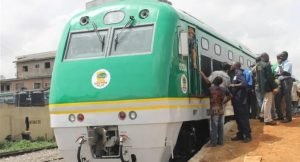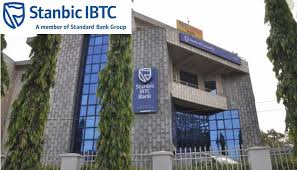
By Abibat Aliu
Airline operators in the country have called for infrastructural upgrades and extension of operating hours at Lagos and Abuja airports, to reduce bottlenecks and under-utilisation of assets in the sector.
The two facilities, especially Lagos domestic terminals where almost all airlines start daily operations, have perennially slowed passenger facilitation during the morning peak periods, with spiral effects on the entire network and attendant under-utilisation of operating aircraft.
Besides the Murtala Muhammed Airport II (MMA2) terminal that has multiple boarding gates, the General Aviation Terminal (GAT), used by Air Peace, Arik Air, Green Africa among others, has only two gates.
Earlier reported that gross under-utilisation of commercial airplanes in the country cost local carriers as much as N4.3 billion per plane yearly. The conservative estimate, made by airline operators, was identified as one of the reasons local carriers perpetually struggle and are always on the verge of collapse.
Chairman West-Link Airlines, Capt. Ibrahim Mshelia, yesterday, said there is no reason for the airport managers to keep welcoming new airlines without expanding available infrastructure to meet their growing needs.
Mshelia narrated that airlines like Arik, Air Peace, Ibom Air, Aero, and Dana Air, on a 7 o’clock departure schedule, would cumulatively have about 600 passengers to process.
“Because of the infrastructure challenge, it takes you five minutes to check–in each passenger. Even if you reduce it to two minutes per passenger, how many counters would you need to be able to check-in those people within the two-hour window that the airline has? It is a lot!
“If you (airline) have no space, then you will have congestion, then chaos and then commotion at the end. So you have issues with passenger delay, sorting baggage, access to the tarmac, moving bags, number of vehicles that can do it and so on.
“There are so many things that are dependent on the infrastructure that we are talking about. There is infrastructure but the capacity of airlines has overwhelmed it and one wonders why all these years nothing was done to expand it until only recently that they are doing some expansion,” he said.
Mshelia added that the immediate solution is to expand the space at Abuja airport and extend operating hours in Lagos vis-à-vis the rehabilitated Runway18 Left.
“Between these two airports, to be frank, there is no problem with daylight operations. So, the quick fix is to open up the entire airport to midnight services. If you do so, the airlines will naturally adjust their schedules and give space, it would naturally mitigate this without doing anything to the current infrastructure. If you open the airport to close at midnight, you have solved a lot of the problems already, and in Abuja, open up the old international terminal that is not being used,” he said.
Chief Executive Officer of Ibom Air, George Uriesi, earlier said that the odds are stacked against local airlines, due to the “Nigerian conundrum”.
Uriesi noted that the Nigerian airlines use the same aeroplane as everyone in the world but because the operator is from Nigeria, he pays higher acquisition cost, higher cost of insurance that is three times more than in Europe, North America and Asia, uses weak naira to pay in dollars and so on.
“On top of it all, you are operating in a systemically limiting environment that makes it harder for you to be as productive as your colleagues in Europe, Asia and North America.”
He added that the sunset airport phenomenon (across most airports nationwide) is a strange one because it is one of the limiters to aircraft utilisation. Most of the sunset airports are declared operational from 6am or 7am to 6pm or 8pm.







